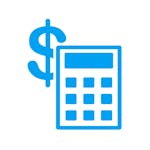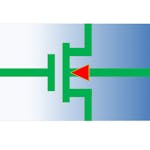
Economics of Money and Banking
Learn Economics of Money and Banking from Columbia University. The last three or four decades have seen a remarkable evolution in the institutions that comprise the modern monetary system.
33 h

The Age of Sustainable Development
Learn The Age of Sustainable Development from Columbia University. The Age of Sustainable Development" gives students an understanding of the key challenges and pathways to sustainable development .
38 h

Construction Cost Estimating and Cost Control
Learn Construction Cost Estimating and Cost Control from Columbia University. This course introduces the types of cost estimation from the conceptual design phase through the more detailed design phase of a construction project.
22 h

Construction Project Management
Learn Construction Project Management from Columbia University. Construction Project Management introduces you to Project Initiation and Planning.
22 h

MOS Transistors
Learn MOS Transistors from Columbia University. Please Note: This version of the course has been formed from an earlier version, which was actively run by the instructor and his teaching assistants.
34 h

Construction Scheduling
Learn Construction Scheduling from Columbia University. Learners will discover the key project scheduling techniques and procedures including; how to create a network diagram, how to define the importance of the critical path in a project .
27 h

Construction Finance
Learn Construction Finance from Columbia University. The final course of the specialization expands the knowledge of a construction project manager to include an understanding of economics and the mathematics of money.
22 h

Hi-Five: Health Informatics For Innovation, Value & Enrichment (Social/Peer Perspective)
Learn Hi-Five: Health Informatics For Innovation, Value & Enrichment (Social/Peer Perspective) from Columbia University. Hi-Five (Health Informatics For Innovation, Value & Enrichment) Training is an approximately 10-hour online course designed ...
8 h

Poverty & Population: How Demographics Shape Policy
Learn Poverty & Population: How Demographics Shape Policy from Columbia University. This course has four modules, or foci. The first is to understand the categories of social welfare—populations, income, earnings, and assets— and some related concepts that play a very large role in shaping policy decisions: unemployment, inflation, and the minimum wage
15 h

3D Reconstruction - Single Viewpoint
This course focuses on recovering a scene's 3D structure from its 2D images.
11 h

3D Reconstruction - Multiple Viewpoints
This course focuses on recovering the 3D structure of a scene from images taken from various perspectives. We begin by creating a detailed geometric model of a camera and then devise a method for determining (calibrating) the internal and external parameters of the camera model.
8 h

US Social Services Compared
Learn US Social Services Compared from Columbia University. In all nations, social policy is a very large public investment. Course 1 will explore the size, structure, and outcomes of U.S.
8 h

Social Services for Families, Seniors and Those with Disabilities
Learn Social Services for Families, Seniors and Those with Disabilities from Columbia University. Course 4 discusses four populations: families, poor families, people with disabilities, and people as they age.
10 h

Health, Housing, and Educational Services
Learn Health, Housing, and Educational Services from Columbia University. Course 5 discusses policies in four areas: housing, education, healthcare, and immigration, with an optional fifth module in child protection.
19 h

US Social Services: Where did they come from?
Learn US Social Services: Where did they come from? from Columbia University. The course probes the formation of social policy in the United States from its very first cultural and religious roots.
12 h
Subjects
Benefits of Taking Columbia University Online Courses
Taking Columbia University’s online courses offers several benefits:
- Prestigious Learning Experience: Columbia University is known for its academic excellence, and taking online courses allows you to access the same quality of education as in their on-campus programs.
- Flexibility: Online courses are designed to fit into your schedule, allowing you to learn at your own pace. Whether you're a working professional or a full-time student, these courses can provide balance learning with other responsibilities.
- Diverse Subjects: Columbia University offers various free and paid courses in subjects such as data science, business, social work, and humanities.
- Certification: Many of Columbia University’s free online courses with certificates allow learners to gain credentials upon completion, providing an extra boost to your resume or portfolio.
Columbia University: Free vs. Paid Courses
Columbia free courses offer a wealth of knowledge, especially through platforms like Coursera and edX. These free courses are designed to provide access to learning for students worldwide. Nonetheless, there are premium plans for those learners, who want more comprehensive learning experience with extra features such as graded assignments, comments from peers, as well as certificates.
Free Courses: The free versions of the courses provide learners access to all the educational content, including video lectures and readings, without any charges. These are ideal for individuals looking to expand their knowledge without a financial commitment.
Paid Courses: In the paid options, learners can receive additional features such as graded assignments, instructor feedback, and the chance to earn a verified certificate. Columbia University free online courses with certificates may require payment for certification, although the course content itself remains free to access.
FAQs
1. Where can I find Columbia University’s free online courses?
You can find Columbia University’s free online courses on platforms such as Coursera and edX. These platforms host a wide range of Columbia’s courses, providing learners with access to free educational content from various fields of study.
2. Do I receive a certificate for completing free courses from Columbia University?
While you can access course materials for free, certificates typically require payment. To obtain a verified certificate upon course completion, learners usually need to pay a fee. However, some Columbia free online courses may offer financial aid or scholarships to cover the certification costs.
3. Are these free courses the same as the paid ones at Columbia University?
The content of the free courses is often the same as the paid versions in terms of educational material, including lectures and readings. However, the paid courses often include additional features such as graded assignments, peer reviews, and instructor feedback. The main difference lies in the certification and evaluation components.
4. How do I enroll in Columbia University’s free online courses?
To enroll in Columbia University’s free online courses, simply visit platforms like Coursera or edX, search for Columbia University, and browse through the available courses. You can sign up for free to access course content or choose the paid option for added benefits and certification.
5. Can I audit the free courses, or do I need to complete them for a grade?
Yes, most free courses from Columbia University allow learners to audit the course. Auditing means you can access all the course materials but will not be graded or receive a certificate. If you wish to complete assignments and receive grades or certification, you will need to pay for the course upgrade.
Discount Offers
 Get 50% off on Skillshare Monthly or Annual plan
Get 50% off on Skillshare Monthly or Annual plan  Domestika courses upto 70% off . Extra 10% off with coupon: COURSESITY
Domestika courses upto 70% off . Extra 10% off with coupon: COURSESITY  Get upto 80% off on Udemy
Get upto 80% off on Udemy 50% off on DataCamp for everything
50% off on DataCamp for everything  Save with 50% off on all courses Udacity
Save with 50% off on all courses Udacity  50% off Pro & Student-Annual on Codecademy
50% off Pro & Student-Annual on Codecademy  $1 for the first month of Coursera Plus Monthly
$1 for the first month of Coursera Plus Monthly  Upto 55% discount on Educative coding courses
Upto 55% discount on Educative coding courses  Buy 1 membership, gift 1 Free for Masterclass
Buy 1 membership, gift 1 Free for Masterclass